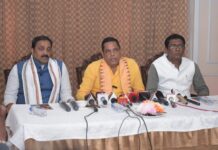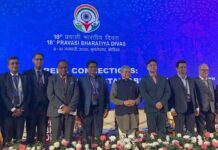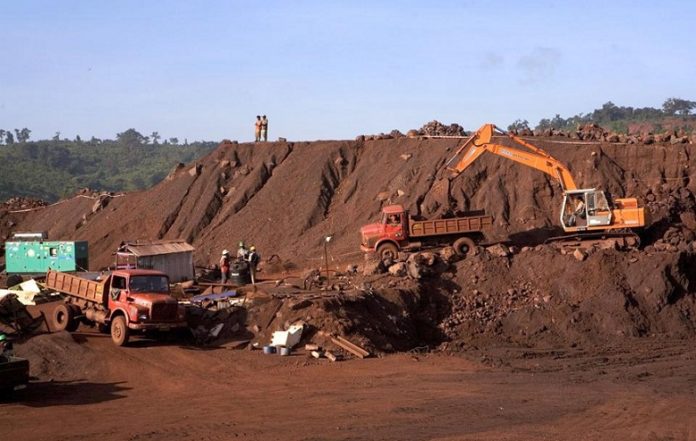By Our Correspondent
BHUBANESWAR/NEW DELHI: Geological Survey of India (GSI), the premier Geological organisationof India, celebrated its 172nd Foundation Day across all the offices with great enthusiasm. The main function was held at the Central Headquarters of GSI, Kolkata, where Shri Rajendra Singh Garkhal, Director General, inaugurated the celebrations.
Shri R. S. Garkhal, underlined the strides made by GSI during the last 172 years and stressed on the need to sustain the same through various initiatives that the organization has taken up under its five Missions. He pointed out that GSI has been instrumental in identifying the mineral blocks and augmenting the vast mineral resources of the nation. Shri Garkhal highlighted that recentlyGSI has handed over more than 150 G2 and G3 Mineral Blocks as well as 152 G4 Mineral Blocks to various state governments for auctioning. He called upon the young officers to work tirelessly and make use of state of art technologies for carrying out explorations and other geoscientific work to make the nation self-reliant in the mineral sector. Shri Garkhal interacted with the students and enlightened them about the activities of GSI and the achievements made by the organisation since its inception.
Speaking on the occasion Shri M.M. Powar, ADG &HoD, highlighted the new initiatives that GSI have undertaken, especially on the administration front.Dr. S. Raju, ADG & NMH-III & IV said that GSI as an organisation has evolved with the passage of time and has become a premier Geo-Scientific organization in the world.On the occasion, coffee table books and audio-visuals were released on the activities undertaken through different missions of GSI. An exhibition of rocks, minerals and fossils was also organized for the students of various colleges from Kolkata and its suburbs.
The Geological Survey of India (GSI) was set up in 1851 primarily to find coal deposits for the Railways. Over the years, GSI has not only grown into a repository of geo-science information required in various fields in the country but has also attained the status of a geo-scientific organisation of international repute. Its main functions relate to creating and updating of national geoscientific information and mineral resource assessment. These objectives are achieved through ground surveys, air-borne and marine surveys, mineral prospecting and investigations, multi-disciplinary geoscientific, geo-technical, geo-environmental and natural hazards studies, glaciology, seism tectonic study, and carrying out fundamental research.
GSI’s chief role includes providing objective, impartial and up-to-date geological expertise and geoscientific information of all kinds, with a focus on policy making decisions, commercial and socio-economic needs. GSI also emphasises on systematic documentation of all geological processes derived out of surface and subsurface of India and its offshore areas. The organisation does so by using the latest and most cost-effective techniques and methodologies, including geophysical and geochemical and geological surveys.
GSI’s core competence in survey and mapping is continuously enhanced through accretion, management, coordination and utilization of spatial databases (including those acquired through remote sensing). It functions as a ‘Repository’ or ‘clearing house’ for the purpose and uses the latest computer-based technologies for dissemination of geoscientific information and spatial data, through cooperation and collaboration with other stakeholders in the Geo-informatics sector.
An attached office of the Ministry of Mines, GSI has six regional offices located in Lucknow, Jaipur, Nagpur, Hyderabad, Shillong and Kolkata and unit offices in almost



























